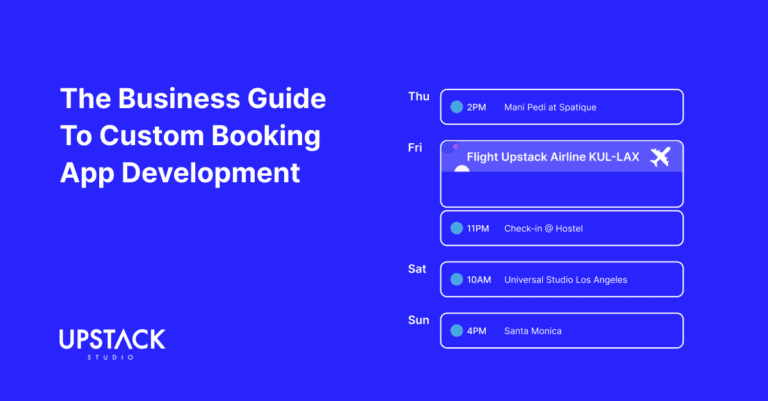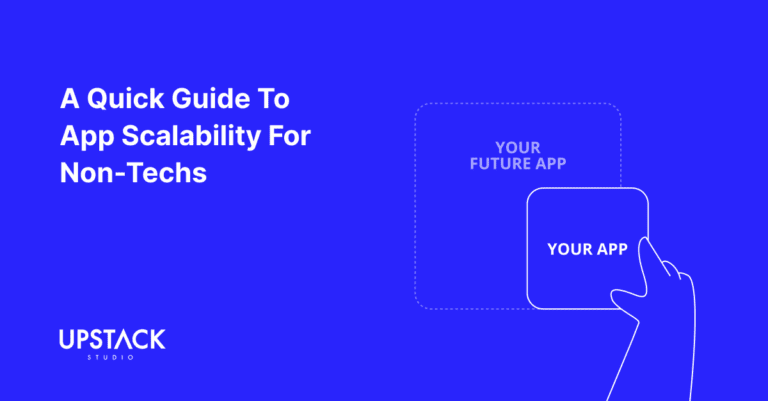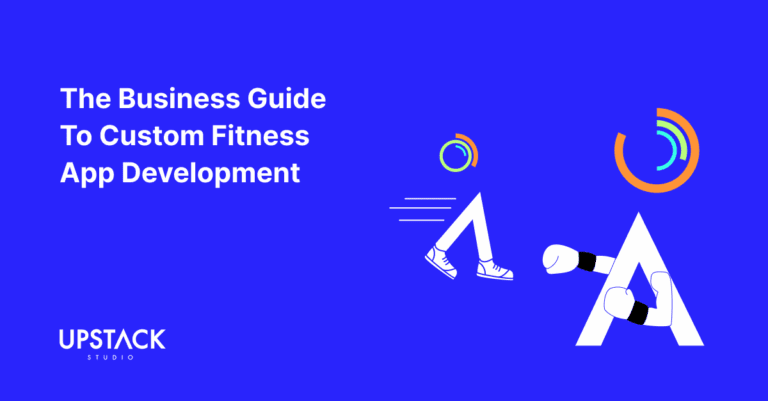Many businesses face the challenge of choosing between native and hybrid app development as both come with their own advantages and tradeoffs.

In this guide, we break down key aspects of both hybrid and native app development (with a bonus solution you never asked for!) to help you decide which one is better for your business.
Let’s begin.
What is Native App Development?
Native app development refers to creating apps specifically for a single platform (iOS or Android). It can only be one.

These apps are built using the native tools provided by the platform’s development ecosystem, namely Swift for iOS and Kotlin or Java for Android.
Characteristics of Native App Development
- Built using platform-specific programming languages
- Access to the full range of device features and hardware
- Published through platform-specific app stores (Apple App Store, Google Play)
Pros of Native App Developemt
- Optimal Performance: Since native apps are built specifically for one platform, they leverage the platform’s full potential, resulting in smooth, fast performance.
- Access to Device Features: Native apps have direct access to hardware features like GPS, camera, microphone, and sensors.
- Better User Experience: Native apps adhere to specific platform guidelines, providing a seamless and intuitive user experience.
- Greater Security: Native apps generally offer better data protection and more security features.
Cons of Native App Development
- Higher Development Cost: You need separate development teams for each platform, increasing overall costs.
- Longer Development Time: Native apps take longer to develop since each platform requires its own codebase.
- Maintenance Complexity: Managing multiple codebases (one for each platform) can be challenging and resource-intensive.
What is Hybrid App Development?
Hybrid app development combines elements of both native and web applications.
More importantly, it reminds us of the best damn album from 2000.

Hybrid apps are essentially web applications (written in HTML, CSS, and JavaScript) that run within a native ‘container’. Popular frameworks like Ionic, React Native, and Flutter are often used to develop hybrid apps.
Characteristics of Hybrid App Development
- Built using web technologies but wrapped in a native shell
- Capable of running on multiple platforms (iOS, Android)
- Deployed via App Stores
Pros of Hybrid App Development
- Cross-Platform Compatibility: A single codebase works for multiple platforms.
- Faster Development Time: Much of the code is shared across platforms.
- Cost-Effective: Development costs are lower as you don’t need separate teams for each platform.
- Easier Maintenance: Updates and bug fixes can be applied across platforms in one go.
- Access to Device Features: Plugins allow access to some native features like GPS and cameras.
Cons of Hybrid App Development
- Performance Limitations: Performance not as fast as native apps for complex applications.
- Limited Access to Advanced Device Features: Lacks the same deep integration as native apps.
- User Experience: Might not provide as platform-specific an experience as native apps.
- Dependence on Third-Party Tools: Third-party frameworks and plugins, which may introduce limitations or compatibility issues.
Nativs VS Hybrid App Development Side-by-Side
Here is a table comparing where native and hybrid apps excel over the other.
| Feature | Native App Development | Hybrid App Development |
| Performance | High performance due to platform optimization | Lower performance, especially for complex apps |
| Development Cost | More expensive (separate development for iOS and Android) | More cost-effective (single codebase for both platforms) |
| Time to Market | Longer due to separate platform development | Faster due to shared codebase |
| User Experience | Excellent (platform-specific guidelines) | Can vary (less optimized for each platform) |
| Access to Device Features | Full access to device hardware and native APIs | Limited access, may need additional plugins |
| Maintenance | Requires managing multiple codebases | Easier, with a single codebase for all platforms |
| Security | Typically better security features | May require extra effort for high-level security |
The decision between native and hybrid app development depends on your business priorities:
Choose Native App Development if:
- You need top-notch performance and a highly optimized user experience.
- Your app requires full access to device-specific features (e.g., AR, VR, advanced camera functionality).
- You have the budget and resources for separate app versions.
Choose Hybrid App Development if:
- You need to launch your app quickly across multiple platforms.
- You’re working with a limited budget and can compromise on performance for a broader reach.
- Your app doesn’t rely heavily on complex features or high-performance demands.
Alternatively, you could go with cross-platform app development, our preferred choice at Upstack Studio.
Cross-Platform Development: A Perfect Solution?
Cross-platform app development combines the best of both native and hybrid apps.
Cross-platform approach allows developers to write a single codebase that can run on multiple platforms (iOS and Android) while still delivering a near-native experience.
Benefits of Cross-Platform Development
- Zero Real-World Compromise: With advanced frameworks like Flutter, React Native, and Xamarin, cross-platform apps can closely mimic the performance and user experience of native apps.
- Cost-Effective Development: By leveraging a single codebase, businesses can significantly reduce development and maintenance costs without sacrificing quality.
- Faster Time to Market: Developing a cross-platform app allows for quicker deployment across platforms.
- Consistent User Experience: Cross-platform development ensures a unified look and feel across all devices.
- Easier Maintenance and Updates: A single codebase simplifies the process of testing, making updates, performing maintenance, and fixing bugs.
Ultimately, the best approach depends on your business’s specific needs.
In a nutshell, if you:
- Have a zero compromise policy on performance, security, and user experience, native app.
- Want to get an app to market quickly and cost-effectively, hybrid development.
- Want a bit of both, give cross-platform app development serious consideration.
Happy building!
If you’re looking to build a mobile application, check out our portfolio of past projects and contact us if you like what you see. Also, consider joining our mailing list for a one-stop resource on everything from micro-SaaS validation all the way to execution and promotion. Get a nifty list of questions to ask app developers when you sign up!
App Developer Interview Questions Template
Download this template now so you know exactly what to ask App Development Agencies! Let us know where should we send it through the form below.





